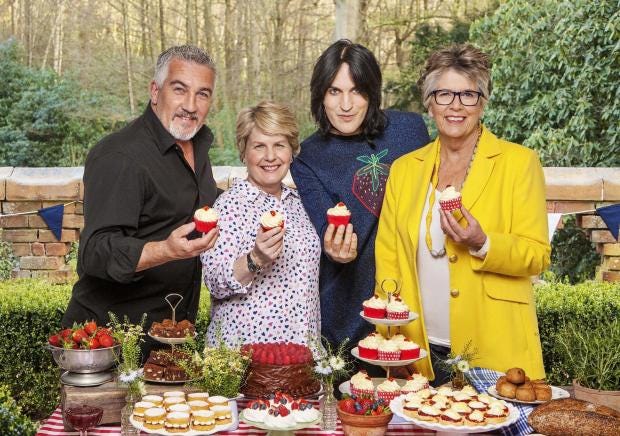
The absence of Mel, Sue, and Mary? Yes. The ad breaks? Of course. But the real problem, the deeper reason for that sense of loss and annoyance one felt watching it even though it was pretty much the same as before, is what the changes represent.
Something that so many people had thought was a free gift is now just a commodity.
The old Bake-Off appeared from nowhere, slowly securing the affections of millions who felt the pleasure of being welcomed into its inclusive, self-deprecating, and beautiful world. Like a family meal, money just wasn’t part of it.
But now the veil has been lifted. Now we know about the contracts, the disputes, the staggering sums of money. Now we have to watch the sponsors’ and advertisers’ witless baking-themed messages appear again and again, constant reminders that our collective enjoyment of the show has been bought and sold for exploitation. In this knowledge, it’s hard to value The Great British Bake-Off as before.
Why this is so is explained with devastating clarity in the book, The Moral Limits of Markets: What Money Can’t Buy (2012) by the Harvard philosopher Michael Sandel. His argument is simple: there are things that should never be given a price tag because it changes them: ‘some of the good things in life are corrupted or degraded if turned into commodities’ (p. 10). We are moving from a ‘market economy’ to a ‘market society’ in which ‘social relations are made over in the image of the market’ (p. 11). In the process we are ignoring the serious moral and political questions raised. What is the proper way of valuing different goods?
So the Bake-Off’s subtle but very real transformation is one (albeit trivial) example of a wider phenomenon. Perhaps it was unavoidable. But in a world where nearly everything is under threat of marketisation, it’s worth remembering that the very qualities we valued may be lost in the process.